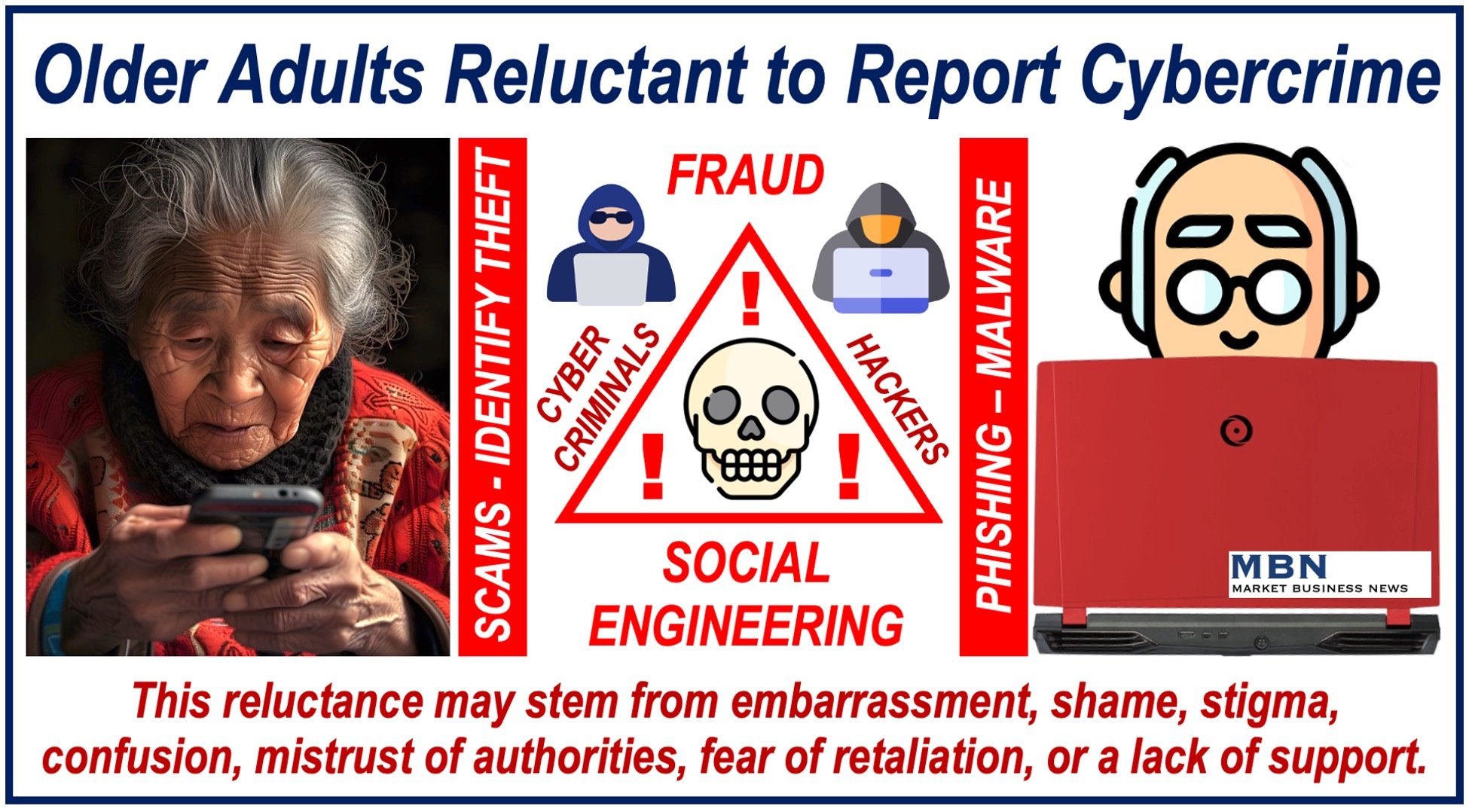A new study has found that adults aged 75+ years are more likely to repeatedly experience cybercrime and related financial losses than other adults.
The researchers—Benjamin Havers, Kartikeya Tripathi, and Alexandra Burton from University College London; Sally McManus from the City, University of London; and Claudia Cooper from Queen Mary University of London—wrote about their study in the peer-reviewed, open-access journal PLOS ONE (citation below).
Cybercrime is Big Business
Over a one-year period, from April 1, 2018, to March 31, 2019, adults aged 55+ years lost over €4 million (£3.31m or $4.15m) to cybercrime and internet-based fraud, including *social engineering and hacking.
* Social engineering refers to scams that trick victims into sharing sensitive information such as bank or card details or transferring money.
Cybercrime—criminal activities carried out via computers or the internet—is a serious threat to older adults who spend time online. Beyond the risk of losing life savings or emergency funds, victims may also experience psychological consequences such as anxiety or depression.
The Study
In this study, the researchers gathered and analyzed 35,069 responses to the 2019-2020 Crime Survey for England and Wales. The survey consisted of face-to-face interviews with randomly selected English and Welsh people aged 16+ years.
Respondents self-reported whether they had become victims of cybercrime once, twice, or more over the previous 12 months. They also indicated whether they lost any money.
The research team tracked the participants’ sociodemographic variables such as occupation, ethnicity, gender, and age, as well as their physical, sensory, cognitive, and mental health.
-
Cybercrime Risk and Age
According to their results, older respondents, those aged 75+ years, were least likely to report experiencing cybercrime, while their 16-to-25-year-old counterparts were the most likely. The authors were not surprised, given that younger adults use the Internet more often and for longer than adults aged 75 and older.
The 75+ age group, however, reported more cases of repeat victimization and subsequent financial losses. This discrepancy likely stems from under-reporting by older adults, who may feel embarrassed, ashamed, or fearful of not being believed, masking the true prevalence of cybercrime within this age group.
Men of African descent and men of mixed/multiple ethnicities reported more victimization than their female counterparts.
People in managerial occupations and those in poor health also reported more cybercrime.

Older Adults’ Reluctance to Report Cybercrimes
The authors suggest that older adults are less likely to report cybercrime due to embarrassment, shame, or disbelief.
We need to equip the 75+ age group with the tools and confidence to identify and freely report cyber fraud.
The Role of Health and Isolation in Cybercrime Prevention
Future research could explore how social isolation and increased use of technology during the COVID-19 pandemic have affected cybercrime risks.
Health and social care professionals can take the lead in developing strategies to address the link between poor health and vulnerability to cybercrime, especially since many older adults face increasing health challenges as they age.
The authors said:
“We analyzed data from the Crime Survey for England and Wales in order to explore whether cybercrime risk varied among people of different age groups and other socio-economic characteristics such as sex, ethnicity, and presence of health conditions. Whilst cybercrime risk was higher among younger demographics, older adults were more likely to experience repeat victimization and financial loss.”
Citation
Havers, B., Tripathi, K., Burton, A., McManus, S., & Cooper, C. (2024). Cybercrime victimization among older adults: A probability sample survey in England and Wales. PLOS ONE, 19(12), e0314380. https://doi.org/10.1371/journal.pone.0314380
